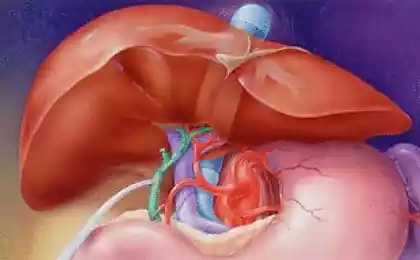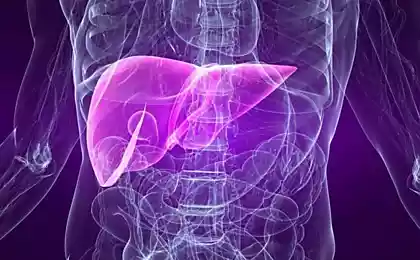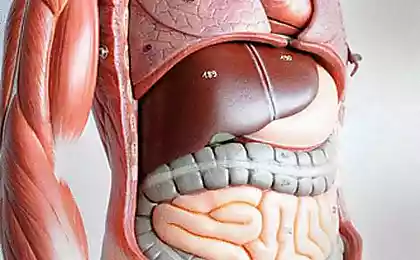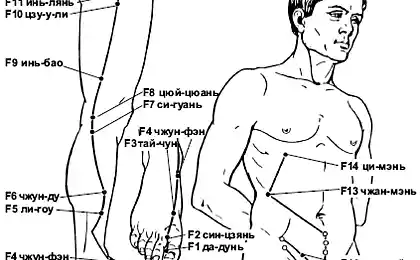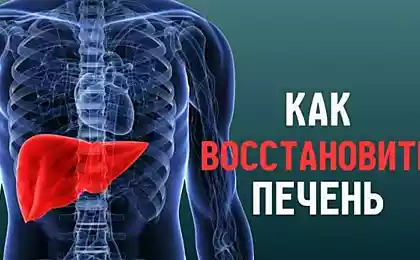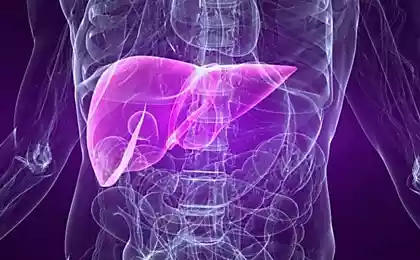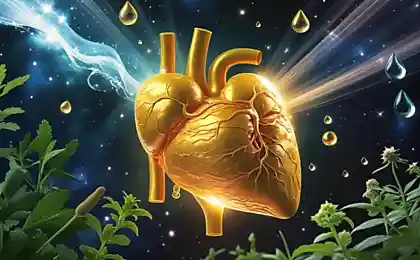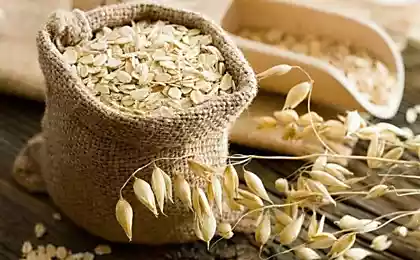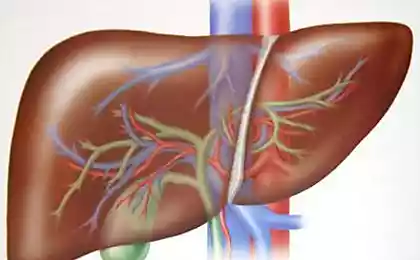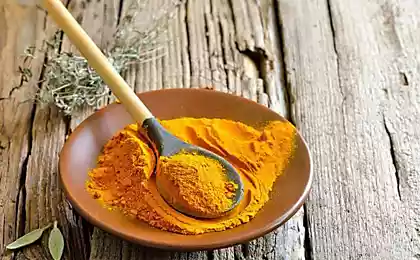247
Unexpected signs of liver disease: 12 signals that will help to suspect something wrong
The liver is often called the silent organ. Even when she has something to say, she prefers to keep quiet. And if her illnesses make themselves felt, then by such unexpected signs that you will not suspect the real cause in life.
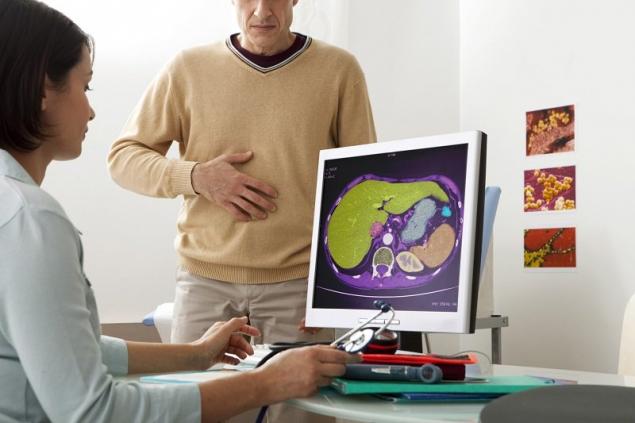
DepositPhotos
The fact is that there are no nerve endings in the liver, so it does not hurt. As a result, a person for many years may not even suspect that the health of his liver is impaired. But still there are some symptoms that will help to suspect something wrong.
Why the liver hurts The liver is the largest gland in the human body. It weighs about 1.5 kilograms and performs more than 70 functions. It is located in the right hypochondrium under the diaphragm. The organ is located in a special capsule, which is a two-layer shell.
738222
DepositPhotos
When we talk about “pain” in the liver, it should be understood that this organ cannot hurt itself due to the absence of nerve endings. Painful or unpleasant sensations appear with an increase in the gland and stretching of the capsule. If the liver hurts, then it is significantly enlarged.
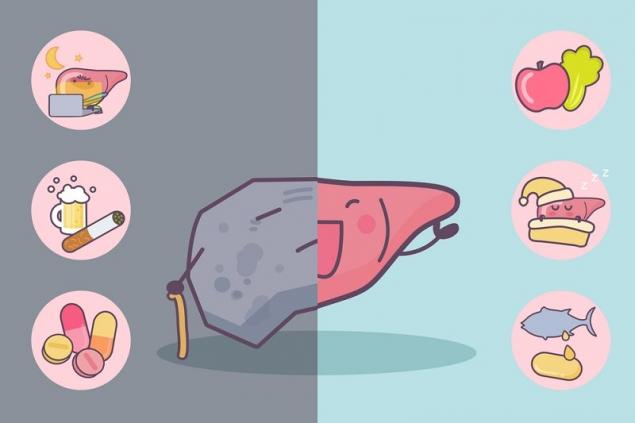
DepositPhotos
Due to the peculiarities of its structure and the functions performed in the body, our natural filter is subject to a large number of diseases. These are viral infections (hepatitis B, C, D) and diseases of bacterial and parasitic nature (tuberculosis, abscess, alveococcosis, echinococcosis, ascariasis).
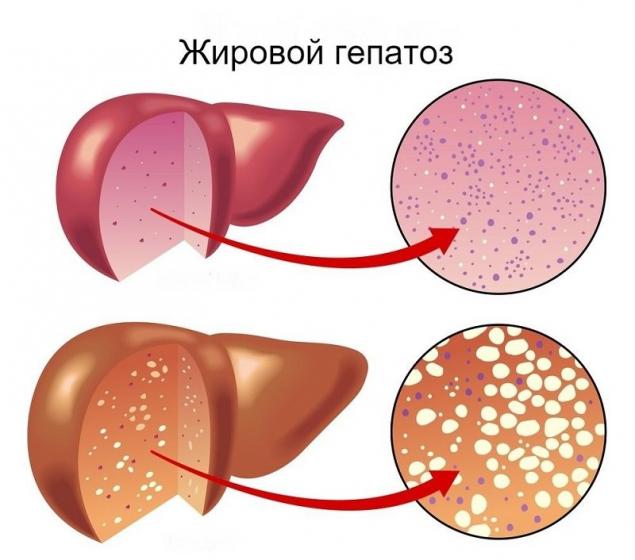
DepositPhotos
And hepatosis (alcoholic and non-alcoholic fatty liver disease), tumor (cyst, cancer, sarcoma, carcinoma), vascular (thrombosis, hypertension), hereditary (hypoplasia, hemochromatosis, pigment hepatosis), traumatic injuries.
The liver has unique abilities to regenerate, but they are not unlimited. The fact that you overload her, she reports sometimes very subtly. We tell you what symptoms will help to understand that your liver is not healthy.
Since many liver diseases are the result of an improper lifestyle, for their prevention it is necessary to adjust the mode of physical activity and the nature of nutrition.
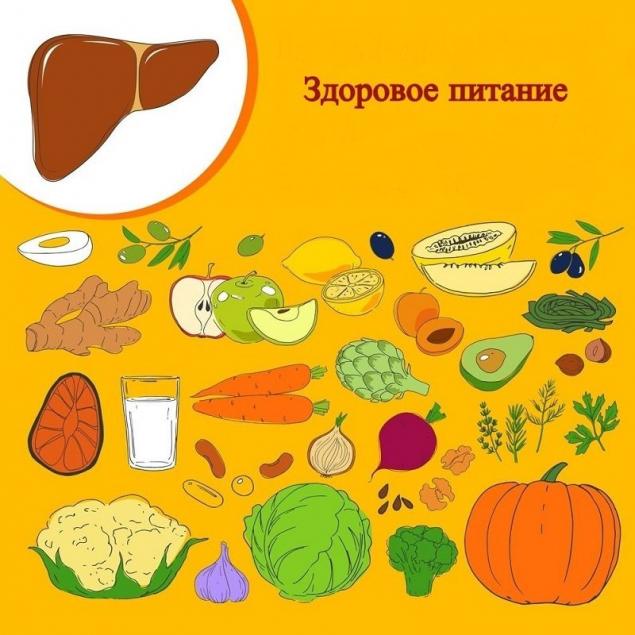
DepositPhotos
Of great importance is the rejection of bad habits and compliance with the rules of personal hygiene (prevention of hepatitis A), sexual hygiene (prevention of hepatitis B and C), general improvement of immunity.
Alcohol, fatty foods, chemical additives in food, medicines - this is not a complete list of enemies of our liver. But fortunately, there are products that best restore our natural filter!
"Site" shares a recipe for raisin water for mild liver cleansing. This procedure is perfect for those who do not want to exhaust themselves with enemas, diets and unpleasant products.

DepositPhotos
The fact is that there are no nerve endings in the liver, so it does not hurt. As a result, a person for many years may not even suspect that the health of his liver is impaired. But still there are some symptoms that will help to suspect something wrong.
Why the liver hurts The liver is the largest gland in the human body. It weighs about 1.5 kilograms and performs more than 70 functions. It is located in the right hypochondrium under the diaphragm. The organ is located in a special capsule, which is a two-layer shell.
738222
DepositPhotos
When we talk about “pain” in the liver, it should be understood that this organ cannot hurt itself due to the absence of nerve endings. Painful or unpleasant sensations appear with an increase in the gland and stretching of the capsule. If the liver hurts, then it is significantly enlarged.

DepositPhotos
Due to the peculiarities of its structure and the functions performed in the body, our natural filter is subject to a large number of diseases. These are viral infections (hepatitis B, C, D) and diseases of bacterial and parasitic nature (tuberculosis, abscess, alveococcosis, echinococcosis, ascariasis).

DepositPhotos
And hepatosis (alcoholic and non-alcoholic fatty liver disease), tumor (cyst, cancer, sarcoma, carcinoma), vascular (thrombosis, hypertension), hereditary (hypoplasia, hemochromatosis, pigment hepatosis), traumatic injuries.
The liver has unique abilities to regenerate, but they are not unlimited. The fact that you overload her, she reports sometimes very subtly. We tell you what symptoms will help to understand that your liver is not healthy.
- Symptom #1: Decline and general weakness
Liver diseases are characterized by complaints about the appearance of an unreasonable feeling of fatigue. Such changes are most often the first to notice not even the patients themselves, but people from their close environment. Weakness, apathy, loss of strength, sleep disturbance can occur as a result of general intoxication of the body. This occurs when the liver does not cope with its main task - purification of the blood and neutralization of harmful substances.
DepositPhotos - Symptom No. 2: Abdominal swelling
Ascites is an accumulation of fluid in the abdominal cavity, in most cases observed with cirrhosis of the liver. It occurs when fluid or sodium is retained in the body and increased blood pressure in the veins coming from the intestinal tract and other organs to the liver. Poor blood circulation and the inflammatory process make excretion of sodium from cells difficult. That's how water accumulates. The accumulation of fluid can cause spasms, painful sensitivity, shortness of breath and pain. - Symptom No. 3: Painful sensations in the stomach
The liver is placed in the right part of the body above the stomach and under the lungs. Inflamed liver hurts, and this pain is well felt in the intercostal area and below.
DepositPhotos - Symptom No. 4: fluid retention
Sodium retention and high blood pressure can cause fluid accumulation in the body and without ascites. Swelling (edema) of the face, legs and hands is a common phenomenon in such a cluster. Eden is also provoked by other diseases, for example, dysfunction of the lymphatic system, kidney disease, emphysema, congestive heart failure. Irregular or periodic fluid delays tend to appear during menstruation or carrying a child, and they disappear on their own. If the symptoms of edema worsen or do not go away for a long time, it is necessary to find out the cause of its occurrence. - Symptom No. 5: dyspepsia (indigestion)
From time to time, each of us faces indigestion due to illness or poor-quality foods. It is possible to experience nausea for a long time due to various conditions, for example, poisoning, vertigo, pregnancy and hemicrania. If you vomit for several days (sometimes there is diarrhea or vomiting), this should alert you. Think about what might have caused indigestion. If it does not go away, make an appointment with a doctor. With liver failure, nausea is accompanied by other symptoms.
Cirrhosis and liver failure negatively affect the digestive tract. Partially bloating, abdominal pain and nausea cause a slowdown in intestinal peristalsis. Insulin resistance and insufficient amount of intestinal bacteria due to liver failure only add complications. - Symptom No. 6: Disordered digestion
Liver damage can cause intestinal permeability (the so-called "leaky gastrointestinal tract"), excessive bacterial growth in the small intestine, a general slowdown in food digestion. This is due to changes in hormone levels and bile production. Chronic flatulence, a change in toilet habits, a decrease in gastrointestinal comfort may indicate violations in the liver. - Symptom #7: Itchy skin
Interestingly, liver disease can provoke itchy skin (pruritus). Cholestasis is the reduction or cessation of bile secretion from the liver. Pruritus sometimes accompanies cholestasis. The mechanism of its appearance has not yet been fully studied. In theory, there are steroid substances that are produced in the process of cholesterol synthesis in an alternative way (not by the liver, as is usually the case). This leads to itching and pruritus.
In this case, essential oils, apple cider vinegar, searing nettle tea, oatmeal baths, guava leaves, cayenne pepper, hemp cream, menthol, castor oil will help you.
- Symptom #8: Bile spillage
Bilirubin is formed when bile splits in the blood cells of hemoglobin. It's actually a product of isolation. When it accumulates in the blood, the eyes or skin become yellowish. Bile spillage in most cases, it indicates the presence of liver disease or blockage of the bile ducts. - Symptom #9: Loss of appetite
Liver diseases also disable the mechanism of hunger. During the immune reaction, cytokines (proteins that act as intercellular mediators) are activated. The appearance of cytokines in the digestive tract can cause loss of appetite.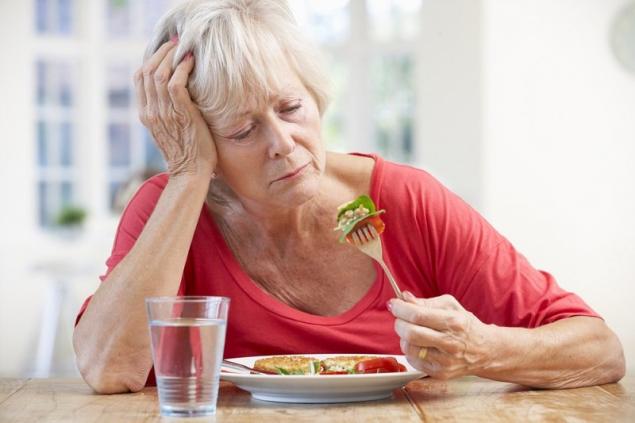
- Symptom No. 10: Stained stool
As you know, bilirubin stains your feces. Violation of liver function can change the color of feces, and this is already a clinical manifestation of cirrhosis, tumors, gallbladder stones, cysts or hepatitis. If such a change is observed for a long time, contact a specialist. - Symptom #11: Atypical color of urine
Impaired liver function can affect the production of bilirubin. In this case, its production will be done by the kidneys, and the pigment will be removed from the body along with the urine. Urine color with increased bilirubin It changes from light yellow to orange, golden or brownish. This may indicate liver damage.
The appearance of an atypical color in urine can also be caused by dehydration, excessive amounts of vitamin A, urinary tract infection, large amounts of protein, consumption of beets. If the atypical color of urine persists for a long time, make an appointment with a specialist. - Symptom No. 12: constipation, diarrhea and intestinal bleeding
With severe liver damage, the intestinal tract is also affected. High blood pressure in the veins and arteries of the liver can cause rupture of blood vessels. It will be followed by gastrointestinal bleeding. It can happen in the stomach, intestinal tract or esophagus. If a tumor develops in the liver, it can produce hormones that affect other internal organs. Hormones can affect digestive processes and cause chronic constipation (constipation). Liver cancer in some cases is also evidenced by the presence of chronic diarrhea.
Since many liver diseases are the result of an improper lifestyle, for their prevention it is necessary to adjust the mode of physical activity and the nature of nutrition.

DepositPhotos
Of great importance is the rejection of bad habits and compliance with the rules of personal hygiene (prevention of hepatitis A), sexual hygiene (prevention of hepatitis B and C), general improvement of immunity.
Alcohol, fatty foods, chemical additives in food, medicines - this is not a complete list of enemies of our liver. But fortunately, there are products that best restore our natural filter!
"Site" shares a recipe for raisin water for mild liver cleansing. This procedure is perfect for those who do not want to exhaust themselves with enemas, diets and unpleasant products.
Fasting Soda in the Morning: This Is Why Everyone Needs a Piece of Sodium Hydrocarbonate Every Day
The Art of Baking Booze in the Oven





